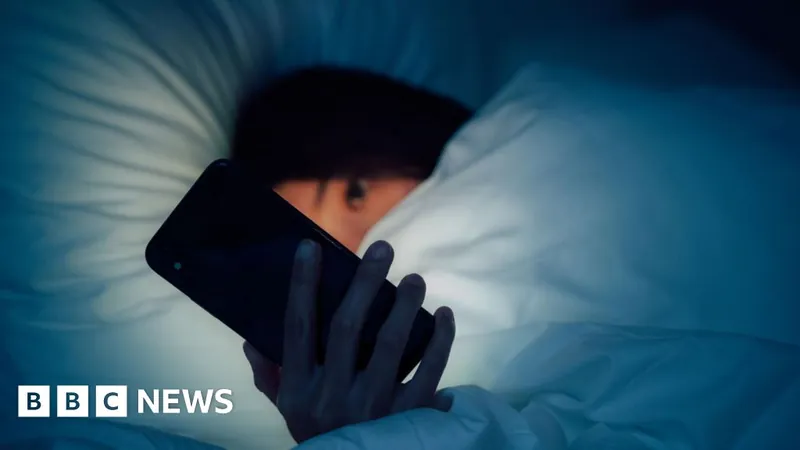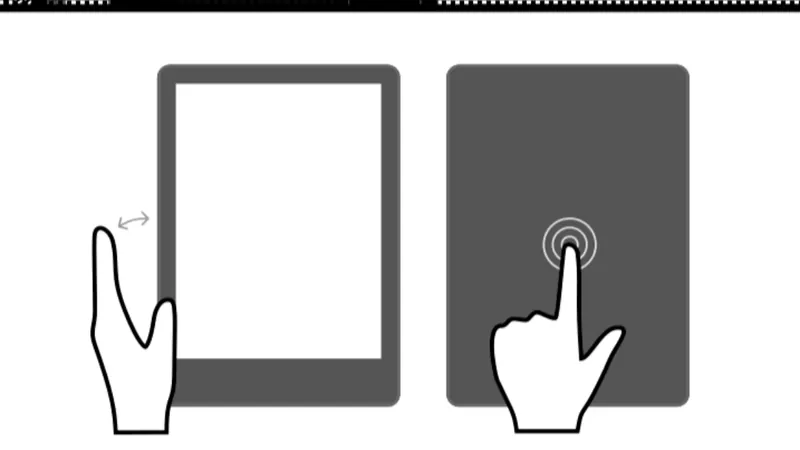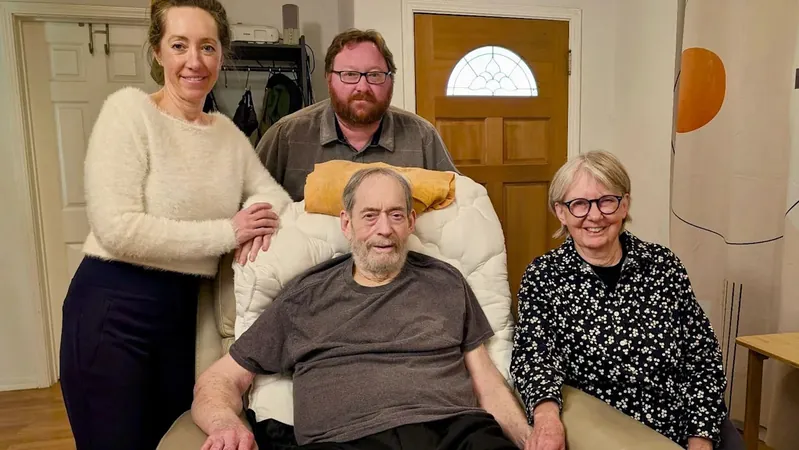
Are Your Late-Night Screen Habits Sabotaging Your Sleep? New Research Reveals Shocking Correlation!
2025-04-01
Author: Liam
Recent research has thrown a spotlight on a concerning trend: increased screen time in bed is significantly linked to insomnia and disrupted sleep. A comprehensive study involving over 45,000 Norwegian students has revealed alarming statistics: for every additional hour spent glued to a screen while in bed, the risk of insomnia climbs by a staggering 63%, while participants reported losing an average of 24 minutes of sleep.
The study, conducted as part of a nationwide health survey in 2022 among individuals aged 18 to 28, aimed to investigate the relationship between screen usage and sleep quality. While the findings suggest a clear correlation, researchers emphasize the need for caution in drawing direct cause-and-effect conclusions. Dr. Gunnhild Johnsen Hjetland from the Norwegian Institute of Public Health, the lead author of the study published in a Frontiers journal, stated that it remains unclear whether extensive screen use is a cause of insomnia, or whether those suffering from sleep disturbances are simply more inclined to use screens at night.
The survey scrutinized various forms of screen activity, asking participants whether they engaged in digital media consumption after bedtime. Mixing social media, streaming shows, browsing the internet, and gaming, an impressive 69% of respondents admitted to using screens in bed. The study recorded various patterns of sleep disruption, asking students to self-identify issues like difficulty falling asleep, waking too early, and daytime fatigue.
Although the study highlights a link between screen time and sleep issues, experts like Joshua Piper, a sleep clinician at ResMed UK, call for more extensive research in this area. He noted that adjusting screen brightness or utilizing night mode didn't adequately mitigate the negative impacts of engagement with devices, which tends to disrupt sleep quality and duration.
Sleep disorders such as insomnia are notorious, affecting approximately one in three individuals in the UK. As screens have become integral to daily life—often leading to "doomscrolling" late at night—health professionals caution against the habit of late-night digital engagement. They recommend a series of strategies to promote better sleep hygiene:
1. Establish a Routine
Going to bed and waking up at the same time every day can significantly enhance sleep quality.
2. Create a Relaxing Pre-Sleep Ritual
Engage in soothing activities such as reading a physical book, practicing breathing exercises, or taking a warm bath.
3. Limit Stimulants
Avoid caffeine, alcohol, and large meals close to bedtime to reconcile better with your internal clock.
4. Transform Your Sleep Environment
Making your bedroom a haven for sleep—cool, dark, and quiet—can have a profound effect on your ability to rest.
5. Get Natural Light Exposure
Ensuring you receive ample natural light during the day, particularly in the morning, can help regulate your circadian rhythms.
Dr. Kat Lederle, a sleep therapist, emphasizes disengaging from the day's stressors to ease the mind and foster a conducive sleep environment. With the continued rise of screen time and its known effects on mental well-being, experts are calling for further in-depth studies to clarify the true impact of digital device usage on sleep and inform effective interventions.
As we navigate our tech-saturated world, prioritizing healthy sleep habits isn’t just advisable—it’s essential. Could it be time to rethink your bedtime routine? Don’t let your screen time sabotage your sleep quality!









 Brasil (PT)
Brasil (PT)
 Canada (EN)
Canada (EN)
 Chile (ES)
Chile (ES)
 Česko (CS)
Česko (CS)
 대한민국 (KO)
대한민국 (KO)
 España (ES)
España (ES)
 France (FR)
France (FR)
 Hong Kong (EN)
Hong Kong (EN)
 Italia (IT)
Italia (IT)
 日本 (JA)
日本 (JA)
 Magyarország (HU)
Magyarország (HU)
 Norge (NO)
Norge (NO)
 Polska (PL)
Polska (PL)
 Schweiz (DE)
Schweiz (DE)
 Singapore (EN)
Singapore (EN)
 Sverige (SV)
Sverige (SV)
 Suomi (FI)
Suomi (FI)
 Türkiye (TR)
Türkiye (TR)
 الإمارات العربية المتحدة (AR)
الإمارات العربية المتحدة (AR)